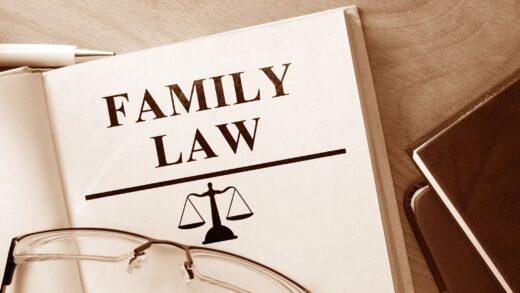The books on other lawyers’ bookshelves interest me because they provide insights to the lawyer’s interests, influence, and intellect. I cannot find the author for attribution, but one of my favorite quotations is “Reading makes the educated person but writing makes the precise person.” To maintain one’s professional education, one must continue to read. I enjoy writing, often quoting from what is on my bookshelf, so my thinking and expression will be precise. Because most of what I know came from others, I frequently use quotes in my writing.
Lawyers no longer use bound copies of the South Carolina Reporter, the South Carolina Digest, and the South Carolina Code of Laws for legal research. If those books are on a lawyer’s bookshelf, they are purely for decoration or for soundproofing between that room and the next room. Most legal research today is done electronically with WestLaw, Lexis Nexis, FastCase, or other on-line sources. When Erin K. Urquhart and I moved our office in June 2009, we threw away many volumes of the South Carolina Reports, Southeastern Reporter Second, and other bound books. I still have the South Carolina Reports that my grandfather bought second hand in 1885 and the eleven volumes of Southeastern Reporter Second I purchased while in law school. I also have Corpus Juris Secundum and the South Carolina Digest, but I last updated them in 2002.
My favorite books on my office bookshelf include:
- Holy Bible (King James Version). A girlfriend gave me this to me for Christmas 1965, during my freshman year of law school. Whatever one’s religious beliefs, there is much “good law” in The Bible, which is the basis for much of our common law and statutory law. I frequently quote The Bible to client’s as a source of good advice (The Golden Rule is good law) and I sometimes quote from it in appellate briefs. One should not infer from this that I am Christian.
- Black’s Law Dictionary. I have both the fourth edition published in 1951 I used in law school and the eighth edition edited by Bryan Garner and published in 2004. I will most probably purchase the recently published tenth edition. The reason for two editions is that if I want a precise technical definition of a legal word or term, then I use the later edition. If I need a more colorful or memorable definition, I prefer the older edition. To see the difference, look up “The Honorable” and “Esquire” in both editions.
- The American Heritage Dictionary (New College Edition). Everyone needs a dictionary. I decided in 1963 that rather than have a vocabulary with many large and long words, I would try to learn to use the small and short words correctly. That decision served me well in writing, but I sometimes need to check the definition of a word used by someone else.
- Quotations with The Oxford Dictionary of American Legal Quotations. Most of what needs to be said has already been said and others have said it much better than I. Many of my favorite quotations are Abraham Lincoln (“Plead not what you need not lest you be required to prove that which you cannot”) and Mark Twain (“Always do what is right. It will gratify some folks and astound others”).
- Elbert Hubbard’s Scrap Book. The way I got this book was a fluke and I did not understand what a treasure I had until I read it years after its acquisition. It contains Elbert Hubbard’s favorite passages from literature. I underlined much of my copy and I frequently use it for briefs, but I quote the original source rather than this book.
- The Favorite Uncle Remus by Joel Chandler Harris, The Adventures of Tom Sawyer by Mark Twain, and The Short Stories of O. Henry. I often explain to clients that if they understand how Br’er Rabbit got thrown into the briar patch, how Tom Sawyer got the fence whitewashed, and how the banker in The Ransom of Red Chief got his son back with the kidnappers paying him, then they are well on the way to negotiating a favorable settlement and avoiding court. A frequent question to clients is “If Br’er Rabbit and Br’er Fox had a dispute and Br’er Rabbit did not want to go to court, what would he say to Br’er Fox? This is a reminder that we took those high school literature courses for a purpose.
- The Adventures of Ephraim Tutt, Tutt and Mr. Tutt, and Tutt-Tutt Mr. Tutt, by Arthur Train. Mr. Tutt, a fictional New York lawyer first practiced in upstate New York and later New York City. Train based each story on an actual New York case. The stories first appeared in The Saturday Evening Post. When a client complains that a spouse has destroyed property, I use Mr. Tutt’s example of a dead mule being worth more than a live one, but you need to read the story to understand.
- How to Win Friends and Influence People by Dale Carnegie. First published in 1936, this book remains a timeless treasure. The bar should require lawyers to read it every year before renewing their bar dues and lawyers should require litigants to read it before filing their first pleading. Carnegie teaches civility as a key to negotiation. As I emphasize to clients and other lawyers, civility is good trial strategy. I buy ten copies at a time to give to clients and other lawyers.
- You Can Negotiate Anything by Herb Cohen. Almost everything we do in life is a negotiation. Settling a case before trial is an obvious example of negotiation but consider that a trial is nothing more than a negotiation with a judge or jury. Cohen teaches the need for knowledge, power or perceived power, and time as the key elements of any negotiation, but he also emphasizes the need for trust, credibility and civility. This is another book I buy ten at a time for clients and other lawyers.
- The St. Martin’s Handbook helps me avoid grammatical errors that would invite ridicule. It also helps me establish the grammatical errors of others. Michael G. Matthews gave me this book, the perfect book for a curmudgeon.
- The Winning Brief by Bryan Garner should be on every lawyer’s bookshelf. Ross Guberman’s Point Made uses the writing of America’s top lawyers to make points on effective writing.
- I also have two ABA publications, The Grammar and Writing Handbook for Lawyers by Lenne Eidson Espenschied and Writing Shorter Legal Documents by Sandra J. Oster.
- What’s Wrong with Children’s Rights by Martin Guggenheim affected my personal and professional understanding and approach to custody and visitation issues more than any other thing I read. It should be required reading for all Family Court judges, lawyers, guardians ad litem, and litigants. I frequently quote Professor Guggenheim in briefs and when speaking at seminars.
- A Guide to Evidence Law in South Carolina by Professor James F. Dreher, my favorite law school professor, remains a favorite forty-seven years after Professor Dreher gave it to me. Professor Dreher explains evidence law better than either the South Carolina Rules of Evidence or the South Carolina appellate courts.
- Typography for Lawyers by Matthew Butterick with a forward by Bryan Garner. This is a short book that I love. My late former partner, Emil W. Wald, once said “Abraham Lincoln said ‘a lawyer’s time and advice is his stock in trade’ but what we really sell is paper.” Emil was right and we agreed that our paper should be attractive. Several years ago co-counsel sent me a complaint for my review. I responded that it was substantively and procedurally correct but one of the ugliest documents I ever saw. I sent him a copy of Typography for Lawyers. A few days later he sent me a beautiful complaint with the statement “I think I made every typography error possible.” We lost a three-day jury trial but our paper was pretty.
- The Lawyer’s Guide to Adobe Acrobat (Third Edition) by David L. Masters which was succeeded by Adobe Acrobat is One Hour for Lawyers by Ernie Svenson, both published by the American Bar Association. Adobe Acrobat should be one of the top software programs in every law office along with a word processor and a time and billing program. Adobe Acrobat, or another PDF program, is the key to the paperless office, organizing work on a case, and finding documents instantly in court.
- Straight Talk about South Carolina Divorce Law by Robert Rosen explains the process well for litigants. I would provide this book to every client had I not written Separation and Divorce in South Carolina, A Layman’s Guide, which is very similar.
- Appellate Practice in South Carolina (Second Edition) by Chief Justice Jean Hoefer Toal with former law clerks Shahin Vafai and Robert A. Muckenfuss. This book is essential to avoid screw ups in appellate practice but I still make them anyway. I would prefer that the book included the personality and insight the Chief Justice shows at oral argument and in personal conversation rather than the dull quotations from statutes, cases, and rules.
- The Little Book on Oral Argument by Alan L. Dworsky. Dworsky wrote this book for law students and young lawyers preparing for their first oral argument. I still consider myself a law student.
- South Carolina Civil Procedure (fourth edition) by Professor James F. Flanagan is the second most used book on my shelf. This book provides a goldmine with limitless nuggets for the prospecting lawyer. Sometimes I use it for recreational reading during the late afternoon or early evening when I need a break.
- Marital Litigation in South Carolina (Fourth Edition, fifth edition is on the way) by Professor Roy T. Stuckey is the starting point for any question in Family Court. Family Court lawyers who do not start their legal research with Professor Stuckey most probably overcharge their clients. However, lawyers who complete their research with Processor Stuckey are probably getting only partial and shallow answers. Marital Litigation in South Carolina is a great tool but it will always be only a secondary source. After getting the overview from Professor Stuckey, go to the primary sources, the statutes, the cases, and the rules for confirmation, exceptions, distinctions, and any post-publication repeal, modification, or reversal.
- The Legal Side of Blogging by Ruth Carter. I bought this book before starting my blog. I keep it on my book shelf for two reasons. It is the beginner’s guide to intellectual property law. It is also a great example of how lawyers should write–clear, concise, informative, and witty with simple words and short sentences.
Now that you know what is on my book shelf, you probably understand most of my inner secrets. For those lawyers whose offices I have not visited, I am interested in knowing what is on your bookshelf and why.




Thanks for reviving this! This is not a comprehensive list, but I have (1) the two volume New Shorter Oxford English Dictionary (one of my favorite professors had a copy and one of my former bosses gave it to me when I left his firm), (2) The Elements of Legal Style, (3) The Elements of Style, (4) (a terribly out of date) Blue Book, (5) Fundamentals of Trial Techniques by Mauet, (it stands the test of time), (6) A Manual of Style for Contract Drafting, (7) Planning an Estate, (8) A Practical Guide to Elder and Special Needs Law in South Carolina) (9) the Lean Law Firm and (10) Black’s Law Dictionary.